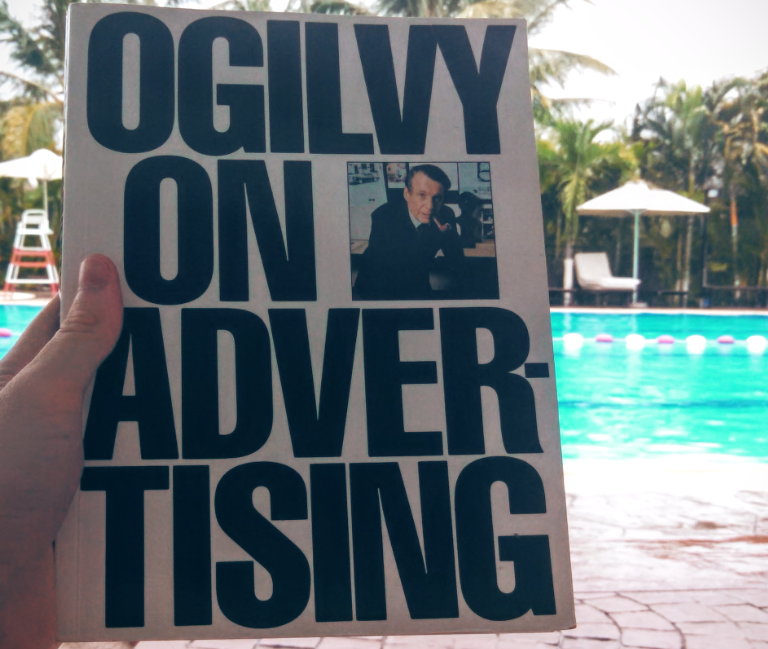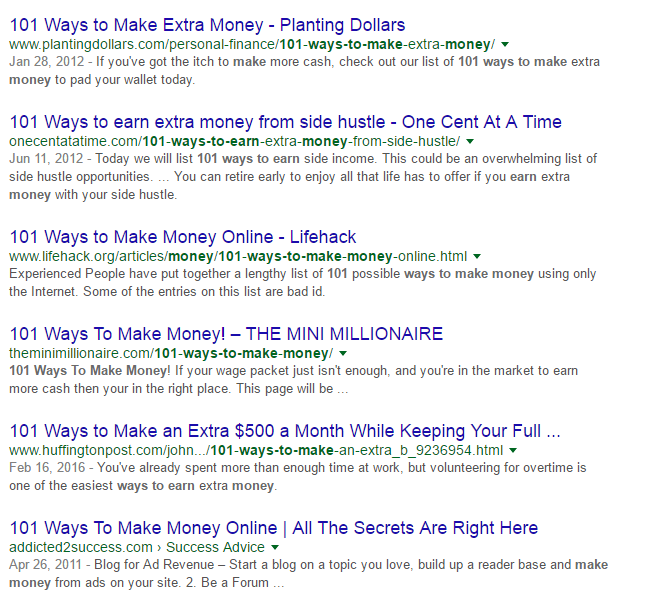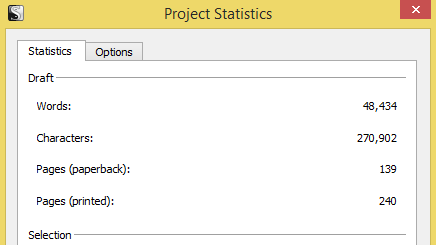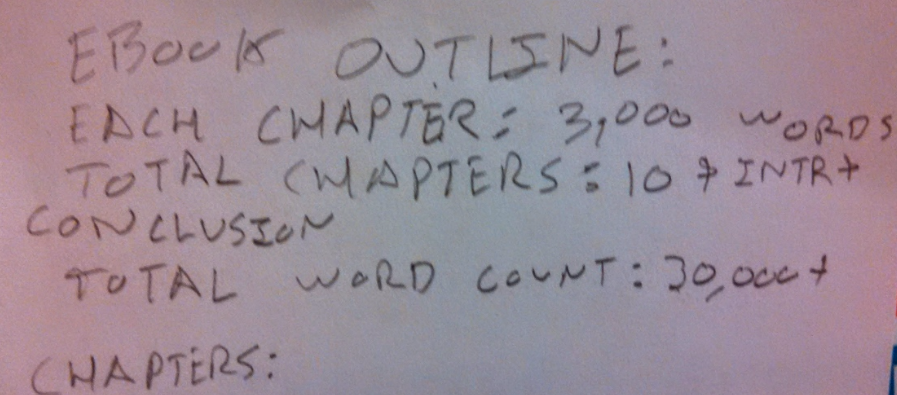 Anyone who tells you that “writing is tough” is a liar.
Anyone who tells you that “writing is tough” is a liar.
A competent wordsmith can hammer out a blog post, sales letter, or book chapter within one hour or less. And they can do this every single day.
Additionally, “fast writing” has nothing to do with “bad writing.” A lot of great authors churn out new books at breakneck speed. Stephen King wrote The Running Man in one week. And Robert Louis Stevenson penned The Strange Case of Dr Jekyll and Mr Hyde in a mere three days.
If you get into the habit of writing quickly, it’s easy to put out several books a year.
Today’s post will showcase several effective habits that make it easier to write blog posts, sales letters, and books.
Set Deadlines For Yourself
When it comes to taking action, don’t procrastinate. Cemeteries are filled with people who had “all the time in the world,” yet failed to every accomplish anything.
The easiest way to knockout whatever writing project you’re working on, is to buy a calendar or day planner and fill it up with project milestones.
Personally, I like using a physical calendar or whiteboard for this (no phone apps). That way, you can hang your goal sheet up someplace where you’re forced to look at it. And then you’re constantly reminded of what needs to be done.
(Here’s The Day Planner I Use To Set My Goals)
I started doing this about a year ago, and the results are amazing. Within the past 12 months, I:
- Penned at least two sales letters every day.
- Published four full-length (150+ pages) books.
- Wrote over nearly two million words worth of content.
As the old saying goes, “What gets measured gets done.” By implementing some basic planning and time management skills, you can easily write multiple books or launch several niche sites over the course of a single year.
Read Sh*tty Novels
The biggest “kick in the pants” confidence booster I ever received came after picking up a Clive Cussler novel.
Clive Cussler is such a terrible author, and his books suck so bad, that I had a major epiphany: “If this guy is a successful writer, I can be one too.”
When it comes to commercial writing (i.e. authoring books or penning sales letters), it’s easy to get stuck in your head. You get paralyzed with fear over whether or not you’ve explained something properly, or if there’s a logical flaw in some position that you’ve argued.
It’s a natural thing that happens to everyone.
The secret to dealing with it? Relax.
When it comes to anything in life, you can only impress people when you already have something they want.
A guy making $750,000 a year isn’t going to be “wowed” into buying some Secrets To Making $100 A Day Online eBook. However, a guy working a minimum wage job he hates would be a prime target for that exact same book.
People only buy into ideas or products that they already want. As a result, your overall message is more important than tiny technical details that most readers wouldn’t notice anyway.
If you want a great example of this, go to your local GoodWill and pick up some novels by Danielle Steel, or Tom Clancy, or Ayn Rand.
All these authors are known for being atrocious “technical writers” (bad dialogue, one-sided characters, poor plotting, etc..), but they’ve connected with audiences on a much deeper emotional level. And that’s what leaves a lasting impression.
Make Minor Tweaks To Your Writing Routine
Lastly, I want to mention a few low-effort ways that you can become a more effective writer.
These are all simple adjustments (you can do them in under a minute), but they’ll have a huge impact on your overall productivity. The next time you’re suffering from “writer’s block,” give one of these a try:
-
Change the font on your word processor.
I write with Scrivener (which has a great default font), but other programs use “Times New Roman” as their standard text. This hurts your eyes and makes it hard to concentrate. Try switching it to “Courier New” instead.
-
Whenever you write a sales letter, jot down any key characteristics of your audience that you’ll want to keep in mind.
This makes it easier to find your project’s theme and tone. Many big corporations base entire product lines off of this simple exercise.
-
Keep close tabs on your project’s “costs vs. rewards.”
This is what separates amateurs from professionals. If you’re writing for fun (like I’m doing with this article), there’s no sense in wasting a bunch of time on edits or revisions. You could better use those resources somewhere else.
However, when you are writing for money (in the case of a sales letter or eBook), make sure that you’re final product is good enough to pass inspection at any major firm in your industry.
In other words, any full-length books you write should look, and read, like they just came from Simon & Schuster or Random House.
If you’re on the fence about whether or not you’re writing for fun or profit, ask yourself the following question:
Is the project I’m doing on right now going to immediately pay me the same as working one hour at my regular job?
If the answer is “yes,” you’re doing something professionally. Otherwise, just get the task done as quickly as possible.
Far too many men waste away precious time “brand building” (a stupid term, by the way) their blogs to nowhere, or their worthless social media platforms.
Always make sure that the thing your working on is worth your full attention. And if it isn’t, move on to something that is.Always make sure that the thing your working on is worth your full attention. And if it isn’t, move on to something that is.
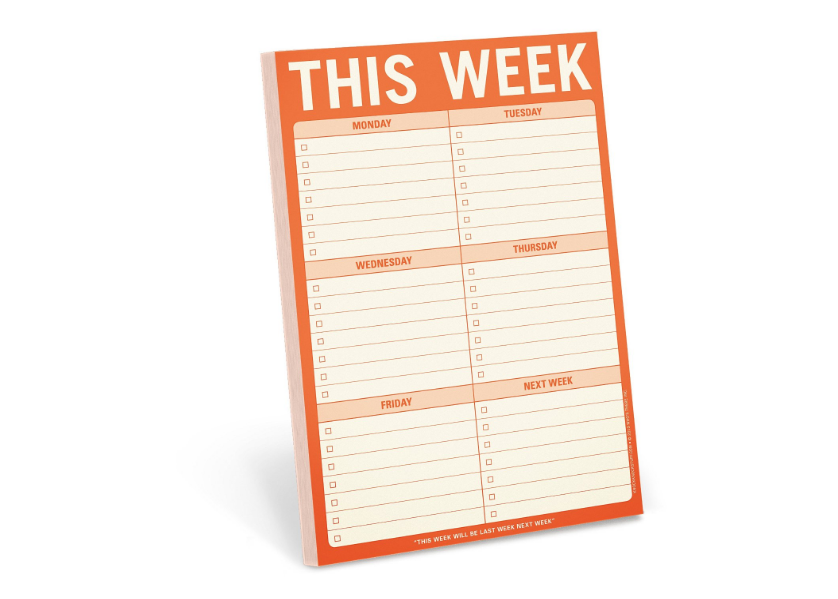


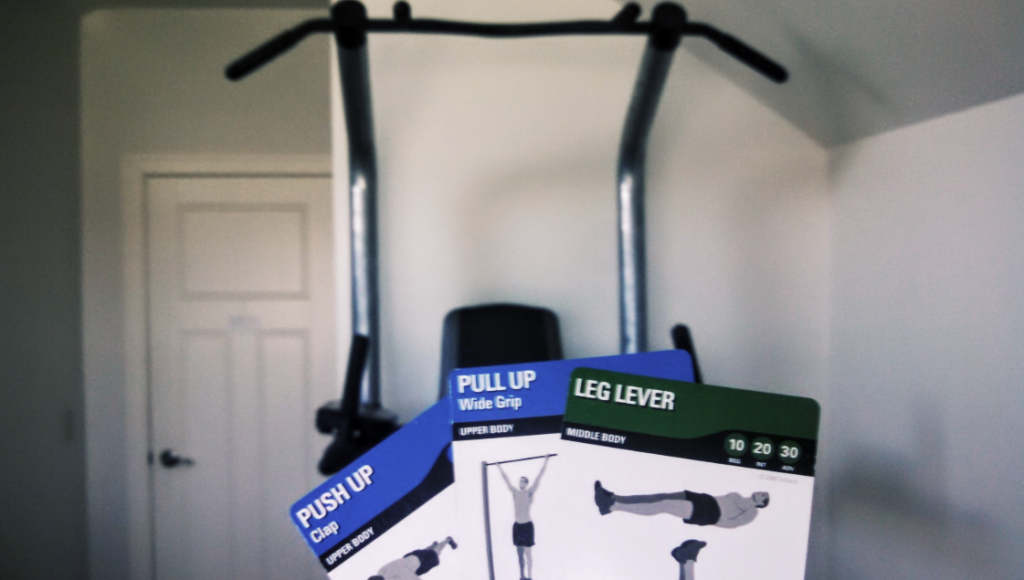
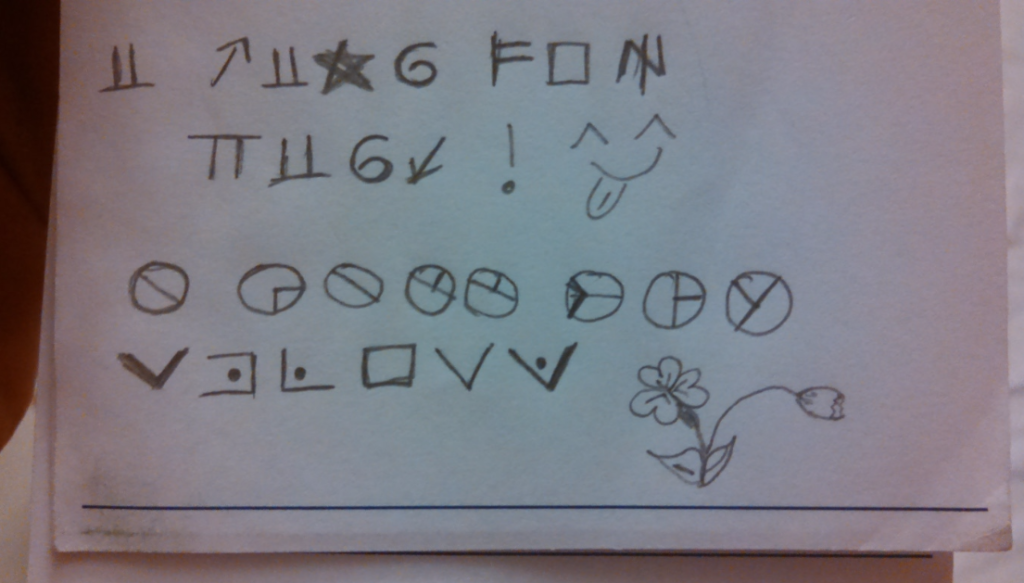



 I recently wrote a full-length, 48,000 word book. And I penned the whole thing in under a week.
I recently wrote a full-length, 48,000 word book. And I penned the whole thing in under a week.